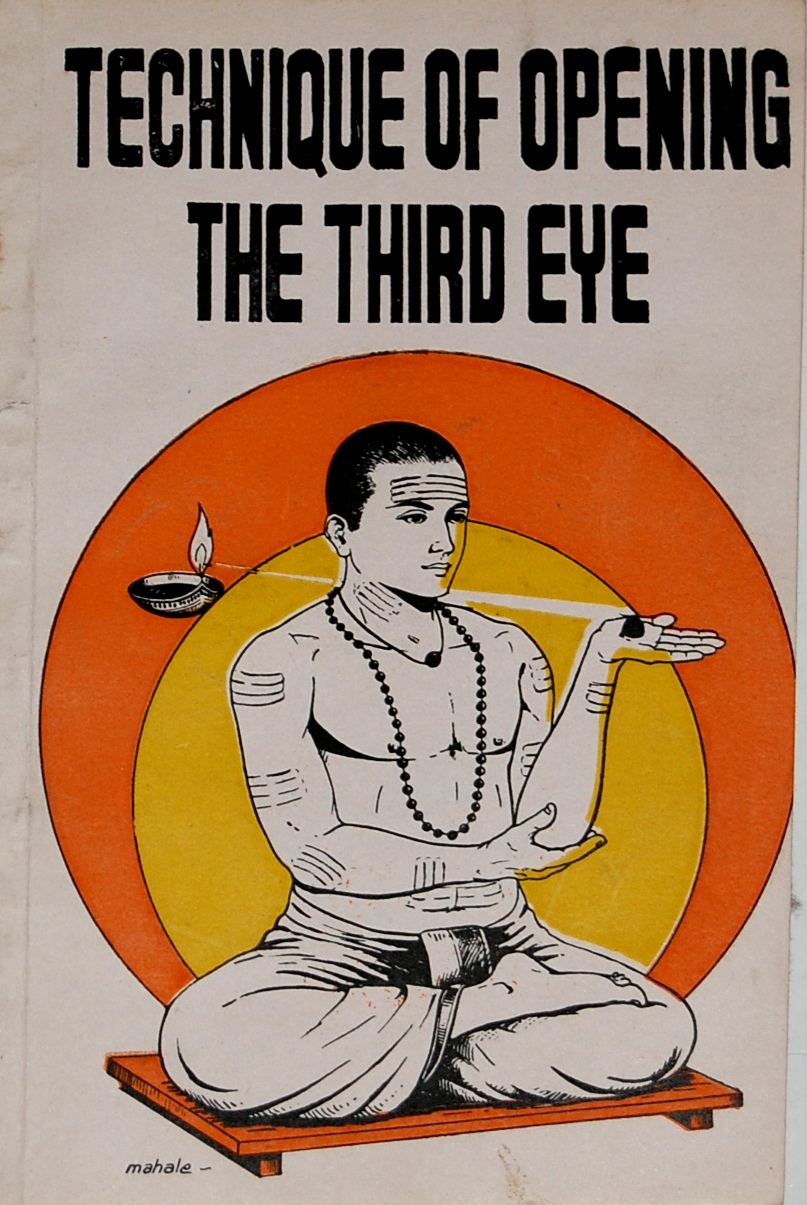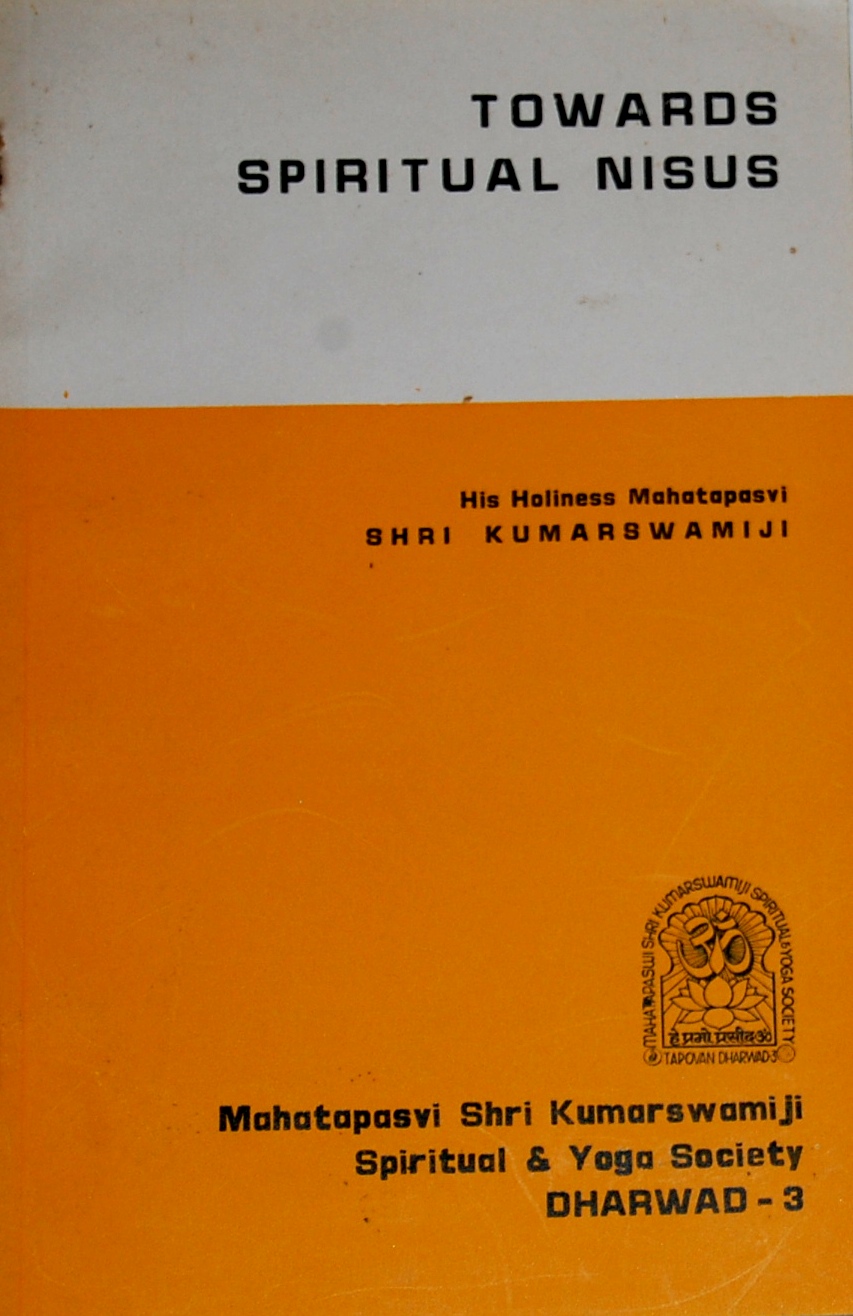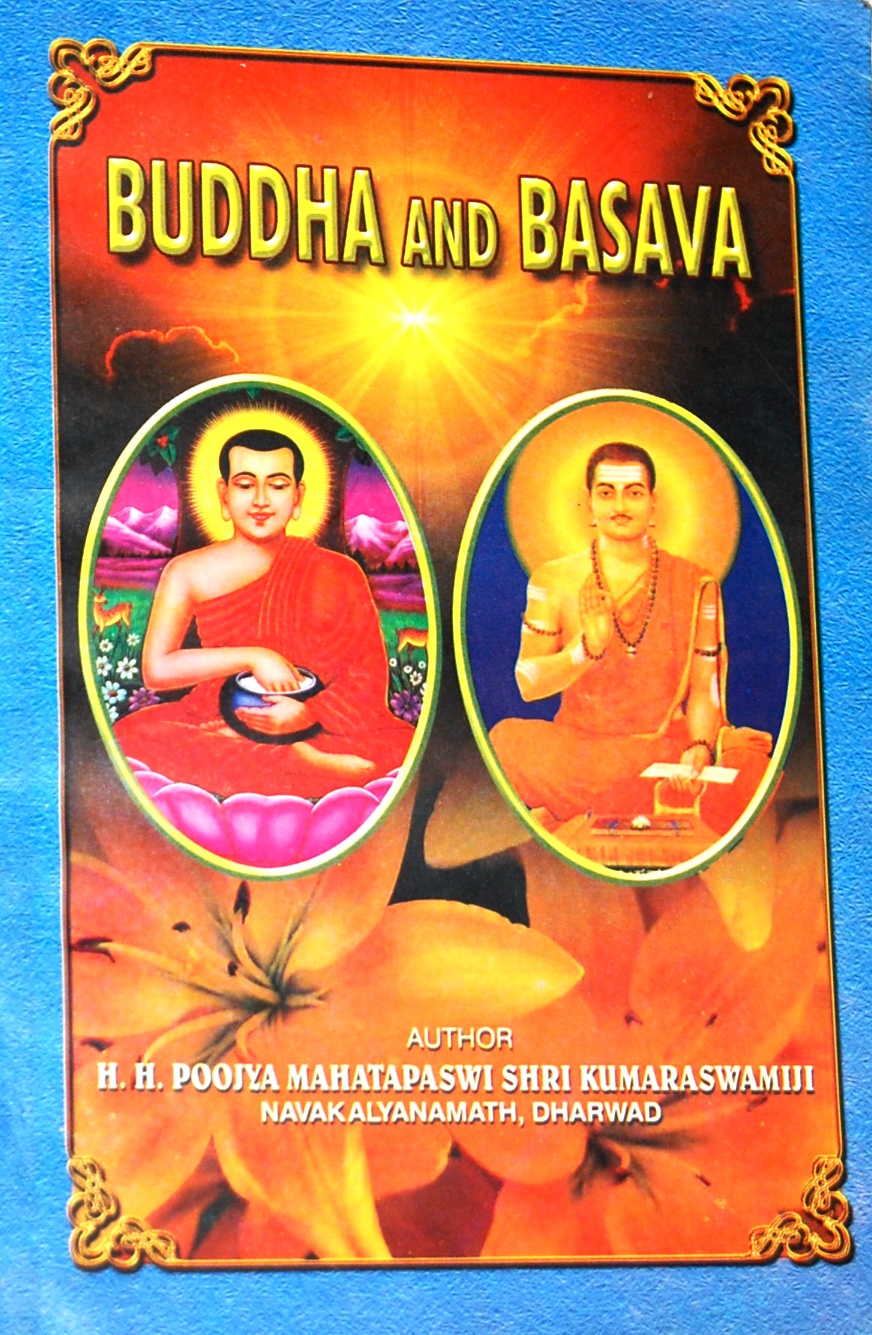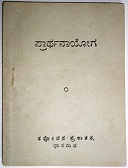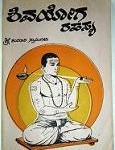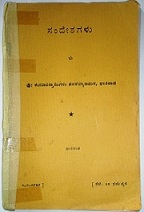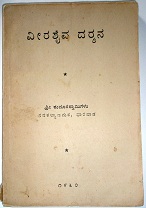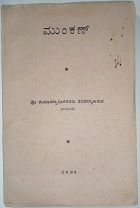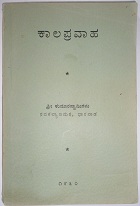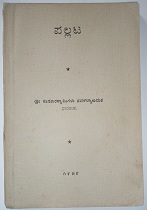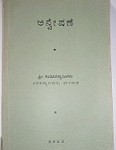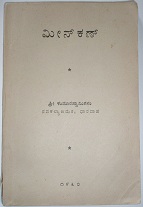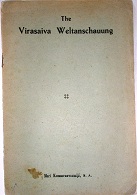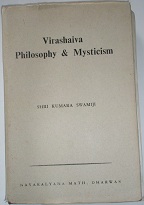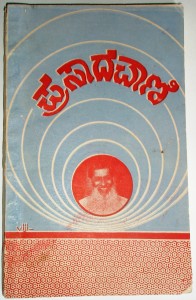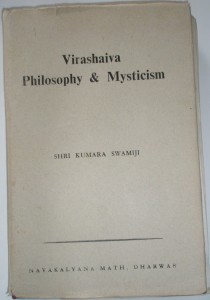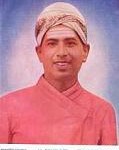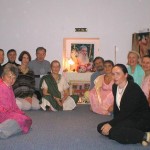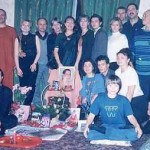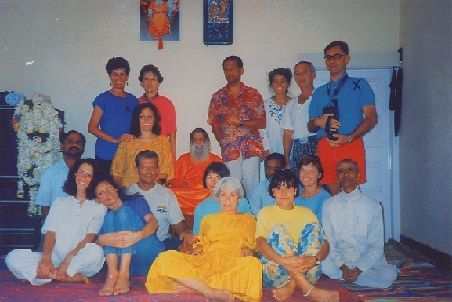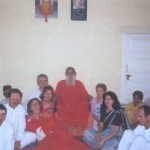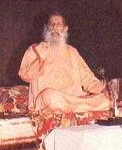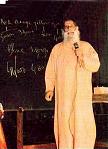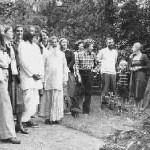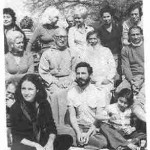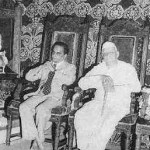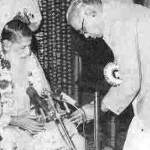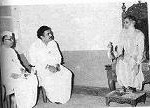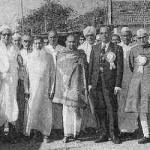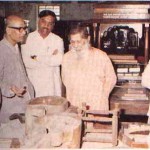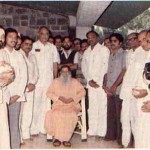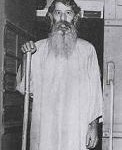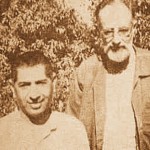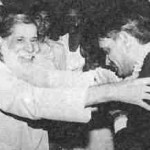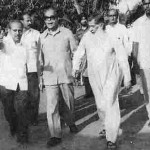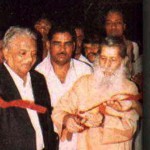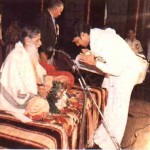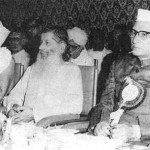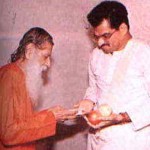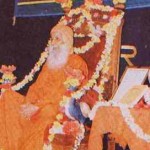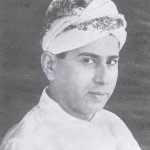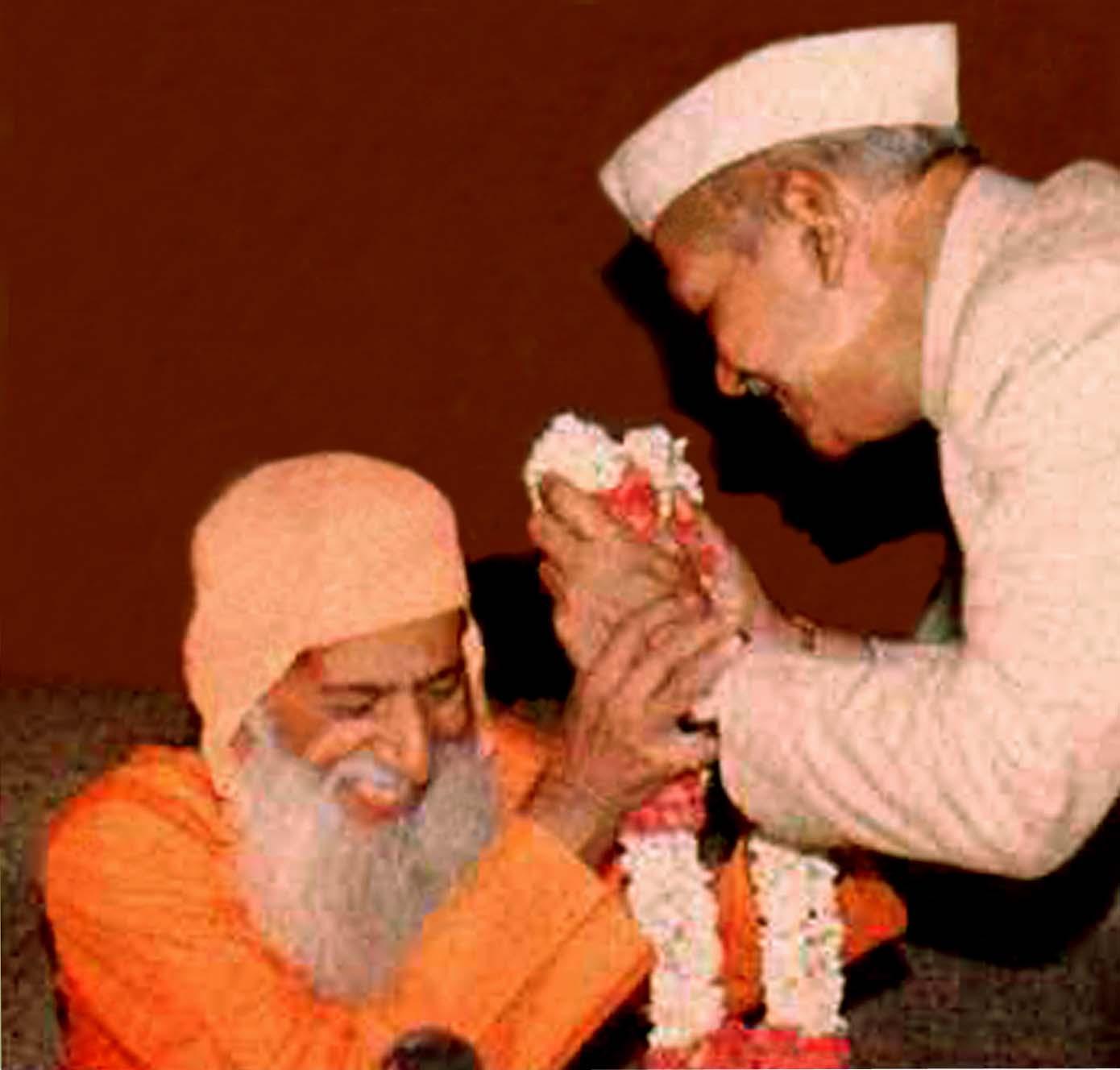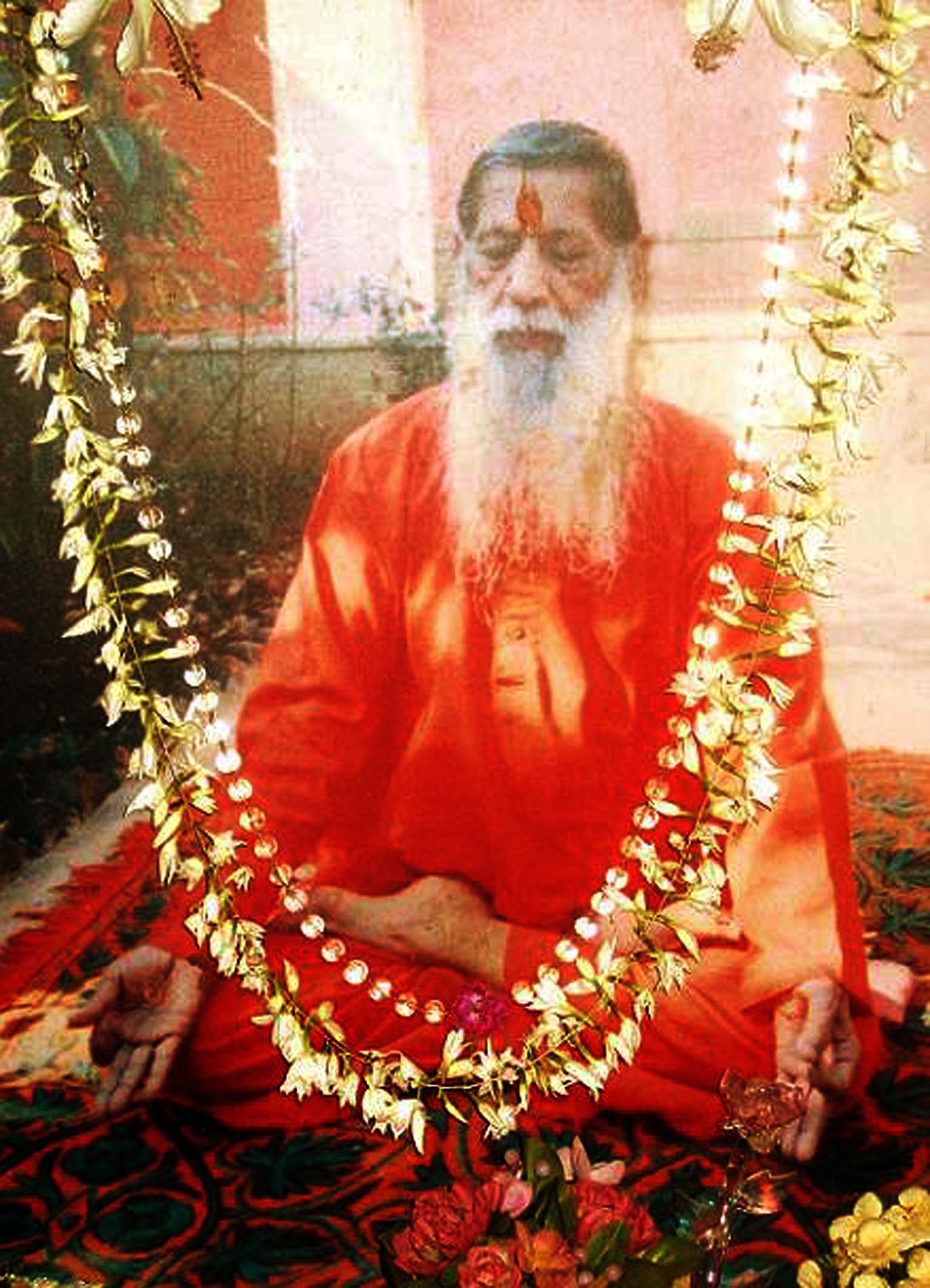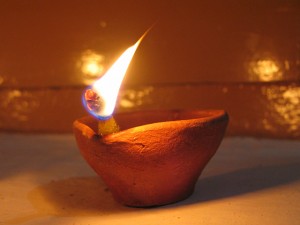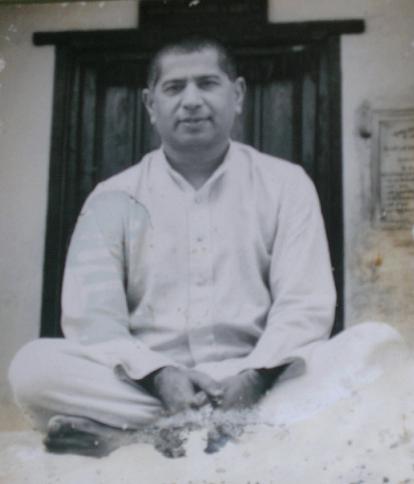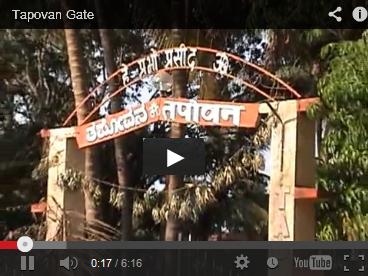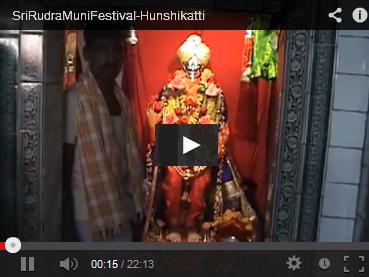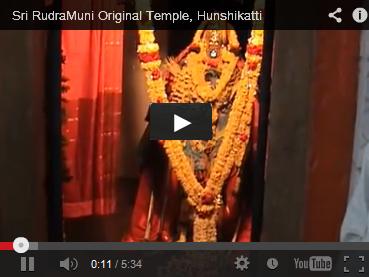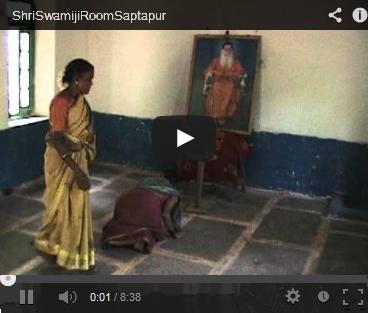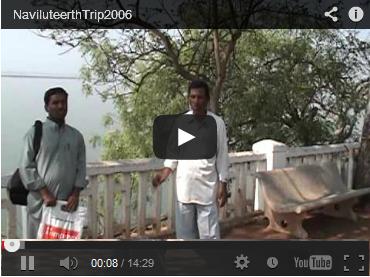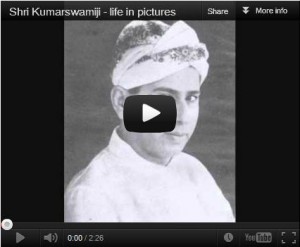The only road to the higher is the present thing well and faithfully done. It is as if in building a house we were to neglect some of the lower work; the whole building must suffer; sometime or other the work would have to be done over again. Our progress or evolution is such an actual building; the building of a temple, the building of a cosmic body eternal in the heavens. And the Sharana, a superman of action, is therefore pledged to build the kingdom of Heaven or Satya-yuga upon earth. Having attained the unity of the diverse elements of his psyche, having had the audacity to face squarely and fairly the adverse nature, the Sharana would venture upon the mighty action of founding the Kingdom of God in humanity, of establishing the Civitas Dei, in the building process of which he has to suffer woes that hope think infinite, to forgive wrongs which are darker than death or night,- to defy power which seems omnipotent, he has neither to change nor falter nor repent but ought to be rejoicing and optimistic, ought to love and bare – till hope creates from its own wreck the thing it contemplates.
Civitas Dei is a desertion of the psychological process of the mystical states of consciousness from European and Indian stand-point.
The proper study of mankind is man, who is himself neither a machine nor a device, but a being, a most complex one indeed. Therefore he cannot be saved by machinery; only by a spirtio-psychological path, by an entire change which shall affect all the members of his being, can he be liberated from his discords and imperfections. It is admitted on all hands that there is a path which leads to the perfecting of man, a path indispensable to the pilgrim’s progress on his way to self-realization. Virashaivism as a path aims at the perfecting of man in all his members, at the spiritualization of all his forces. That there is a path which brings about an inner change in man is recognized by all great religions; and the chief features of that path are described in similar terms in every one of the great faiths of the world. Thus we may read of it in the Roman Catholic teachings as divided into three parts:
1) the path of purgation or purification
2) the path of illumination
3) the path of union with Divinity
In the mystic teachings of Islam the path is known under the names of the Way, the Truth and the Life. We find it in Buddhism divised into eight sub-divisions which goes by the name of Asthanga-sheela. In Virashaivism the puritan of Hinduism, the path is characterized by six stages, namely Bhakta-sthala, Mahesha-sthala, Prasadi-sthala, Pranalingi-sthala, Sharana-sthala and Aikya-sthala.
It is the path which stage by stage enables man to fulfill the command of Christ: “Be ye therefore perfect even as your father which is in Heaven is perfect.” It is the path of which the same Teacher declared” “Straight is the gate and narrow is the way that leadeth unto life, and few there be that find it.” The life to which the path leads the pilgrim is not the life of the passing joys of heaven but to the life which means a change in the attitude of man, which inner change compels him to have a glimpse of the Divine plan and then to become a conscious active co-operator with the Will of God to carry out his scheme of evolution. And “to see that plan is to have the Beatific vision; to work for that plan is to change one’s mortal nature to that of a deathless immortal. Deathlessness in life, Eternity in time, Divinity in humanity are his who, understanding the plan, works for it unceasingly.” This path which involves a spirito-psychological discipline is termed Yoga, and the path which is characterized by six stages is called Sat-sthala-yoga in Virashiavism. Hence Sat-sthala-yoga is the path by virtue of which the pilgrim climbs straight up the mountain of self-realization, regardless of cliff and precipice, of gulf and chasm, fearless of all menace and careless of all consequence, knowing that there is nothing which can hinder the Eternal Spirit, that no obstacle is stronger, than the strength of the omnipotent Will.
First in the sequence of the psychological states of spiritual consciousness comes Bhakta-sthala which is characterized by intense devotion to one and the only one God. This is evidently monotheism and Virashaiva Saints declare in unequivocal terms the oneness of God since, in their view, polytheism can neither survive the growth of moral consciousness nor convince the critical intelligence. Yes, the polytheistic conception of the world outrages the demands for the supremacy of one law of Righteousness, as it flouts the sense for coherence which is the motive of intellect. A world directed by many Gods can neither satisfy the philosopher nor can it give any basis for the fully conscious moral life. In this stage all the tender emotions of the pilgrim cluster round God crystallizing into devotion, the religious emotion, par excellence. Psychologically it is a highly compound emotion consisting of wonder, fear, gratitude and negative self-feeling. This element of negative self-feeling is indeed the corner stone of devotion by which the Soul tries to negate itself before the almighty God by constantly brooding upon the frailty of human nature and evanescence of the worldly life. It is because negative self-feeling is an essential element of devotion, that the extremely confident, self-satisfied and thoroughly conceited person is incapable of devotion and that genuine devotion implies a certain amount of humility and generosity. It is for this reason that all the sayings of Virashaiva mystics in this stage are marked by qualitative varieties of emotional experience of God. The emotional qualities are indeed subjective in as much as they indicate to us primarily not the nature of things, but rather the nature of our impulsive reaction to things. Considered from this psychological view-point, all the passionate yearnings, prayers, psychic burning or heat of the mystic in this stage are merely impulsive reactions to God.
This psychological reaction brings about a ‘change of taste’, the most momentous one that ever occurs in the mystic’s experience; for in him it means the first emergence of that love for God which is to constitute his distinctive character, an emergence crucial in its effect on every department of his life. Thus the self awakens for the first time to the touch of the Transcendent Reality, the awakening involving a disturbance of the equilibrium of self, which results in the shifting of the fields of consciousness with the consequent removal of the centre of interest from the first to the second or New Birth. The birth of the individual is into his own little world, where he is controlled by the primary instincts of preservation and reproduction – instincts which are doubtless a direct inheritance from the brute ancestry. But the dawn of the second Birth ushers the individual into the world of the large-consciousness often attended with the glimpses of a splendour without or a vision within. Ah, the passage from the first to the second Birth is not so smooth as we are wont to guess; it is oft chequered by a series of strongly marked oscillations between ‘states of pleasure’ and ‘states of pain’. These two states answer to the thirsts or tendencies, one the upward and inward and the other downward and outward. Each step towards the vision of the Real brings with it a reaction of the ascent transcendental powers, which are easily fatigued because of the unaccustomed nature of the individual. So the pendulum of the Self swings backward and downward consequent upon the repercussion of the primary instincts. This systole and diastole motion is usually marked by an intense heat or an interior flame or a sensible fire which heralds the pangs of New Birth. Thus declares a mystic, “I was seized and possessed by an interior flame, for which nothing had prepared me; waves of fire succeeding one another for more than two hours”.
It is in this torment of New Birth that we have the first swing back of the oscillating Self from the initial state of mystic pleasure to the complementary state of pain. It is, so to speak, on its transcendental side, the reflex action which follows the first touch of God. The mystics have a profound conviction that the New Birth is a painful process at the best; for the birth pangs must be endured in the spiritual as well as in the material world. The Christian Mystic point to the passion of Christ as a proof that the cosmic journey to perfection, the path of Eternal Wisdom follows of necessity, the way of the Cross.
This divine necessity of pain, this necessary sharing in the travail of the New Birth is the theme of the second stage, Mahesh-sthala. The object of the Mahesh-sthala is like the object of all purgation, freedom – freedom from the fetters of the senses, the ‘remora of desire’, from the results of environment and worldly education, from pride and prejudice, preferences and distaste, from self-hood in every form. The self, in this stage, is to be purged of all that stands between it and goodness; and purification is a perpetual process which involves the drastic turning of the self from the unreal to the real life, from the even tenor of easygoing life to the uneven stress of hard and ascetic life. Here asceticism finds its justification, for the Mahesha has to observe vows, Vrita, regulations, Niyama and moral precepts, Sheela. A saying of the Virashaiva Saint is pregnant with this truth: “Not to touch the property of others is a vrita, not to cherish desire for other’s woman is sheela, not to injure any being is niyama.” Hence it is clear that the divine necessity of pain which the mystics always welcome and often court incites them to build up the moral character and so acquire goodness.
“God is pure Good in Himself” says Eckhart, “Therefore will He dwell nowhere but in a pure soul. There He can pour Himself out, into that He can wholly flow. What is purity? It is that a man should have turned himself away from all creatures and have set his heart so entirely on the pure Good that no creature is to him a comfort, that he has no desire for aught creaturely, save so far as he may apprehend there in the pure Good, which is God. And as little as the bright eye can endure aught foreign in it. So little can the pure soul bear anything in it, any stain on it, that comes between it and God. To it all creatures are pure to enjoy; for it enjoyeth all creatures in God, and God in all Creatures.” Here is an apparent contradiction to be resolved; that the mystic who has declared the fundamental necessity of ‘leaving all creatures’ yet finds the subliminal mind is the power of apprehending simultaneity. In the peculiarities of the subliminal consciousness we recognize the effort of the mind to bridge the gulf between simultaneity and succession. Here the phenomenon is called upon to carry the values of the noumenon.
By training the cognitive dispositions, by cleansing the doors of perception and by being a perfect instrument of God, the Mystic intuits self in natural things, the sense of unity in separateness, the evolutionary sweep of a mighty and actual life pulsating throughout the universe. It is this mighty and actual life that is called Prana Linga in Virashaiva philosophy; and the Mystic who becomes conscious of the living reality of this world of becoming, the vast arena of Divine activity, the indwelling creative power, as the very soul or immanent reality of things is known as Pranlingi. The Self, in this fourth stage or the Pranalingi-sthala participates, actively and open-eyed, in its mighty journey towards God, and seeing with illumined sight all things and creatures as they are in that transcendent order, detects in them too that striving of creation to return to its center which is the secret of the universe. To the Pranalingi the universe is presented as an expression of life, great cosmic life transcending and including our own, not life as an expression or by-product of the universe. The strange passionate philosophy of Neitzsche is really built upon an intense belief in this supernal nature and value of life. But the charm of his philosophy is marred by the one-sided individualism which precluded him from holding a just balance between the life of Ego and the life of All. “Give yourself,” then, says the Pranalingi, “to this Divine and infinite life, this mysterious cosmic activity in which you are immersed and of which you are born. Trust it, let it surge in on you, cast off the fetters of the sense, the remora of desire; and making your interests identical with those of the all, rise to freedom, to that spontaneous creative life which, inherent in every individual self, is our share of the life of the universe. You are yourself vital – a free center of energy – did you but know it. You can move to higher levels, to greater reality, truer self-fulfillment, if you will. Though you be like an oyster in your shell, you can open that shell to the living waters without, and draw from the immortal vitality. Thus only by contact with the real shall you know reality.”
If we accept this verdict, we must then impute to life in its fullness the innumerable worlds, the many faceted planes which escape the rhythm of our sense. We are compelled to perceive in it, as the mystic declares, ‘the beating of the heart of God’, and we agree with Hearcleitus that “There is but one wisdom to understand the knowledge by which all things are steered through the All.” Union with reality apprehension of it, will upon this hypothesis be union with life at its most intense point, in its most dynamic aspect. This union alone can abrogate antinomies between the self and the world, and give meaning and value to human life. The possibility of this adjustment, of union between the life of Ego and the life of the All through intuitive love forms the theme of the Pranalingi-sthala. Reality, says Eucken, is an independent, vital and all-embracing life, unconditional by the apparent world of sense. To know it and to live in it means true destiny; and man is real, and in the deepest sense alive, in virtue of this personal life-principle within him. If, instead of that free and conscious co-operation with the great life of the All which alone can make personal life worth living, we move like slaves oblivious of the whole to which our little steps contribute, we miserably fail to observe the measure of the mighty forces. Thus Pranalingi tells us, “Our minds being distracted from the Coryphens in the midst, the Energetic word who sets the rhythm, we do not behold Him. We are absorbed in the illusions of sense; the eye which looks on eternity is idle. But when we do behold Him, we attain the end of our existence and our rest. Then we no longer sing out of tune, but form a truly divine chorus about Him, in which the chorus-dance, the soul beholds the fountain of life, the principle of Being.” Such a beholding, such a rising of a radiant consciousness of the otherness in natural things, is of the essence of illumined sight of Pranalingi, is the ‘saving madness’ of which Plato speaks in the Phaedrus, “is the ecstasy of the God-intoxicated man, is the lover, the prophet, the poet drunk with life.”
Modern psychologists have struggled in vain to discredit this ‘sense of the presence’, this ‘saving madness’, sometimes attributing to the psychic-mechanism of projection, sometimes to the wish-fulfillments of a more unpleasant origin. It is true that modern psychology has discovered the key to the understanding of human behaviour which is built upon the basis of innate tendencies that are in all essentials, very similar to the instinctive tendencies of animals. But modern psychology, with all its sincerity and sagacity, has failed to assign to the psyche its proper place and due development. It treats only of the processes of the psyche but not of the psyche which forms, as it were, the source and support to all these processes. Affection, conation and cognition have their source and origin in Intuition, the psyche. This is, as it were, the fountain from which proceed all these three phase of activity. William Macdougall defines intuition as ‘implicit apperception’ and he regards it as the germ from which the power of abstract thinking develops. The psyche is really an inner and deeper mind, the mind whose highest element is not a recept or a concept but and intuition. This is the mind in which sensation, simple consciousness and self-consciousness are supplemented and crowned with cosmic consciousness. Lotze practically abandons all inquiries into theories of perception and starts with the assumption that we are living in a cosmos, not a chaos; that the order, coherence, reason in things to which consciousness testifies, are realities. The prime characteristics of cosmic consciousness is, as William James says in his Varieties of Religious Experiences, a consciousness of the cosmos, that is, of the life and order of the universe. We may then conclude the status of Pranalingi with these eloquent words of James. “Along with the consciousness of the cosmos there occurs an intellectual enlightenment or illumination which alone would place the individual on a new plane of existence – would make him almost a member of a new species. To this is added a state of moral exaltation, an indescribable feeling of elevation, elation of joyousness, and a quickening of the moral sense, which is fully as striking and more important both to the individual and to the race than is the enhanced intellectual power. With these come, what may be called, a sense of immortality, a consciousness of eternal life, not a conviction that he shall have this, but the consciousness that he has it already.”
The wonderment does then lie not in the degree of the fact, but in the fact itself – the great fact that the universe is not a mechanism but a life, and that we are that life. The real cause of all intuitive love – whether it be the exquisite dawn of love in youth or maiden, or the intense fervour of creative genius or whether it be the religious frenzy of the saint, or the rapt ecstasy of the mystic�lies in the fact it is the revelation of the self to the self, the great discovery by the individual self of the potentiality of its own infinite nature, of its own mighty power. It is the discovery of this potential mighty power which is the cause of all this manifested drama of space and time that forms the fulcrum of the fifth stage or the Sharana-sthala. This almighty power is, as the Sharana observes, the inherent one, yet variable inner force of all the changes of object consciousness. It is a fundamental truth of the becoming, a truth that supports and gives a spiritual significance to all its appearances. It is that which determines the primary law of all becoming since it is the eternal seed from which all other things are the developments and derivations. This eternal seed or Shatkti is the Power of spiritual Being, the conscious Will of the Supreme, the seed which the Absolute casts into the supra-mental vastness from which the manifested drama of space and time comes into being.
If the Sharana talks in terms of time and space, of great and small, of being and becoming, it is because he recognizes the true nature of a thing; for he knows that the true greatness of a thing is only discoverable in its inner nature and relations, but not in its outer size, function or form. The outer measure and relationship of a thing is always dwarfed by something greater, and still greater again, until in relation to infinity, a solar system becomes as infinitely small as an atom. But when we consider the inner nature and relations of a thing, the thing itself, however small it may be, expands to infinity, and itself becomes the Infinite. It is then seen to be the one infinite substance with the potentiality of all that ever was, is or will be, that potentiality being infinitely more real than the fragmentary portion which is called the actual present. The cosmos is not great because of its outer expansion in diversity but because of the inner compaction in unity. So the Sharana agrees with Emerson when he declares thus: “There is no great and no small, to the soul that maketh all; and where it cometh all things are, and it cometh everywhere.”
What is the real significance of all this? Is it not simply that the apparently individual self never in reality can or does transcend itself in any action or experience either in perception or in apperception? Is it not that the self is all sufficient in itself; that it not merely need not, but, never can go outside of itself for any experience, any knowledge, any revelation? The Sharana has won this unity of self through intuitive love and through this winning he has weaned his psyche of the unity of self has been clearly realized and has become the ruling power in man’s life, he may be said to have reached his spiritual manhood; he enters into his heritage in the universe. He has attuned his will with the Great Law and thereby he enters into the Great Freedom – not a freedom from the law but a freedom in the law. Then he enters into peace; the peace in which his strife is ended because there is no longer any question of his will against the one Will. He is unified with that Will, and in that union he enters into the infinite peace of the harmonious Whole.
The Sharana therefore believes more readily in a divine Will or Destiny, feels more vitally conscious of the spiritual urge in the irresistible subconscious intention of the world. For the order of things in the cosmic life there is a great unseen Power, a universal Will, a cosmic Force or Law at work, which not only gives us all the frame-work and condition of our idea and effort, but evolves by them and by the law of these conditions out of the thing in being, the thing that is to be. And this power deals with us not so much according to the devices of our reason, the truths and fictions of our intelligence but much rather according to the truth of what man is and the real motive and meaning of what he does. Since the Sharana is a man of action, he will often seize on the idea of that universal Force of fact to divinize to himself the mighty energy that he feels driving him on the path of world-altering deeds. “He is,” in the eloquent words of Shri Aurobindo, “like a shell discharged from some dim Titanic howitzer planted in concealment far behind this first line of trenches which we see thrown out by life into the material world; or he is like a planet sped out from Nature’s hands with its store of primal energy sufficient for its given time, its fixed service to the world life, its settled orbit round a distant and sovereign light. He expresses in the idea of Fate his living and constant sense of the energy which has cast him down here whether to break like some Vedic Marut the world’s firm and established things or to cut through mountains a path down which new rivers of human destiny can pour. Like Indra or Bhagiratha he precedes, the throng of the divine waters follow. His movement decides their course; here Indus shall flow, there Ganges pace yellow and leonine to the sea. Therefore we find that the greatest men of action the world has known were believers in Fate or a divine Will.”
We thus, as individuals, live move and have our being in this region of law by which we are most certainly limited and conditioned in order that we may fulfill a definite function in the cosmos and the purpose of a higher will, which, when reunited with it, we shall presently discover to have been no other than our own will. It would then clearly appear that any violent effort to renounce our present duty, to refuse those actions which immediately present themselves to us, as those which we were intended to do, would be the very greatest unwisdom. Ah, is it so that under any circumstances we are to accept the conditions as being the higher will, and make no effort to free ourselves from them? By no means! Who ever said that the individual should never aim at anything higher? The whole of evolution is precisely that aim. But it is our attitude towards the lower as well as towards the higher, towards the individual as well as towards the environment that counts, for the individual and the environment are two composite, distinguishable, yet not separate aspects of the whole life. If integration and harmony within the individual, that is, a synthesis of psychic instruments and faculties is essential to the Pranalingi, adjustment and harmonious relationship with the environment is still more essential to the Sharana in order that he may have a peaceful, happy and prosperous life. To attain perfect adjustment with the environment is a much more difficult and arduous task than to have harmony within oneself. Hindu genius has always excelled in the spiritual but has unfortunately failed often in social one. The long-standing political subjection of the Hindus is probably due to the lack of effort at adjustment. But in Virashaivism, the puritan of Hinduism, we find Sharana-sthala mainly aimed at doing away with excessive other-worldliness and at securing proper adjustment with the environment. If we are in rebellion against the lower, against the environment and shirk our duty in fulfillment thereof, we may possibly succeed for the time being in throwing it off. But we have left something undone; something we shall have go back to. The only road to the higher is the present thing well and faithfully done. It is as if in building a house we were to neglect some of the lower work; the whole building must suffer; sometime or other the work would have to be done over again. Our progress or evolution is such an actual building; the building of a temple, the building of a cosmic body eternal in the heavens. And the Sharana, a superman of action, is therefore pledged to build the kingdom of Heaven or Satya-yuga upon earth. Having attained the unity of the diverse elements of his psyche, having had the audacity to face squarely and fairly the adverse nature, the Sharana would venture upon the mighty action of founding the Kingdom of God in humanity, of establishing the Civitas Dei, in the building process of which he has to suffer woes that hope think infinite, to forgive wrongs which are darker than death or night,’ ‘to defy power which seems omnipotent’, he has neither to change nor falter nor repent but ought to be rejoicing and optimistic, ought to love and bare ’till hope creates from its own wreck the thing it contemplates.’
Last comes the Aikya-sthala, the sixth stage which is characterized by a rarified psychological state of a unitary consciousness that implies the invariable sense of unity or wholeness which accompanies the mystic experience. That there is a psychological sequence right up from the beginning of the Bhakta-sthala to the end of the Aikya-sthala would be clear enough if we take a bird’s eye-view of the psychological basis of all the stages. The psychological basis of Bhakta-sthala is affective; of Mahesha, conative; of Prasadi, cognitive; of Pranalingi, intuitive; of Sharana, executive; and of Aikya is unitive. What does the psychology of this unitive state represent? It represents the final and successful establishment of that unitary consciousness which has been struggling for supremacy during the whole of the pilgrim’s progress. The deepest and richest levels of human personality have now attained to light and freedom, the Ego, Ahma-ta, is remade into the super-Ego-Paraham-ta. The soul has at last unified itself with the Over-soul; and with the cessation of stress and stir spiritual strength has been liberated for new purposes. “The beginning of the mystic life,” says Delacroix, “introduced into the personal life of the subject a group of states which are distinguished by certain characteristics, and which form, so to speak a special psychological system. At its term it has, as it were, suppressed the ordinary self, and by the development of this system has established a new personality, with a new method of feeling and action. Its growth results in the transformation of personality, it abolishes the primitive consciousness of self-hood, and substitutes for its wider consciousness, the total disappearance of self-hood in the divine, the substitution of a Divine Self for the primitive self.”
What does it mean when cast into the philosophic mould? It means that the Ego has risen at last to the true freedom; the self has entered on the fruition of Reality. Hence the Aikya has opened up new paths for the inflow of that Spiritual strength which is at once a vision and an execution. For in that free atmosphere of Divine power, vision and execution or sight and will are combined and no longer as in the mind separated from each other. Therefore the Aikya has the sight of and lives in the truth-consciousness, his will becomes the spontaneous law of the truth in him and knowing all its acts and their sense and objective leads straight to the human destiny, which is always the enjoyment of Divine Delight, the state of immortality. From contact set up with this Divine Delight, he draws that amazing strength, that immovable peace, that power of dealing with circumstance, which is one of the most marked characteristics of the unitive or Eternal life. “To be a mystic”, says Evelyn Underhill, “is simply to participate here and now in that real and eternal life, in the fullest, deepest sense which is possible to man. It is to share as a free and conscious agent -not a servant, but a son – in the joyous travail of the universe; its mighty onward sweep through pain and glory towards its home in God. This gift of Sonship, this power of free co-operation in the world-process, is man’s greatest honour. The ordered sequence of states, the organic development, whereby his consciousness is detached from illusion and rises to the mystic freedom which conditions, instead of being conditioned by its normal world, is the way he must tread if that sonship is to be realized. Only by this deliberate fostering of his deeper self, this transmutation of the elements of his character, can he reach those levels of consciousness upon which he hears, and responds to the measure ‘whereto the worlds keep time’ on their great pilgrimage towards the father’s heart. The mystic act of union, that joyous loss of the transfigured self in God, which is the crown of man’s conscious ascent towards the Absolute, is the contribution of the individual to this, the destiny of the Cosmos.”
In that mystic act of union there is no suppression of life, but it intensifies a change in its form. This change consists in the perfecting of personality by the utter surrender of want or desire which is the badge of subjection with its attendant discord and suffering. By an absolute renunciation of desire and its knot, the ego’s Delight and Being becomes the self-possession of the Aikya. It is only by the Ananda or Delight of being at once transcendent and universal that man can be free in his soul and yet live in the world the full active life. For to that perfect person or Aikya there is nothing whatsoever in the universe that is really separate, individual or discrete; that everything in its wholeness and completeness would expand to infinity and become the Absolute all; that every atom is balanced against the whole universe, and acts and reacts at every moment with the Whole, and that therefore the Whole is present at every moment, in everything however minute it may be. This reveals that everything depends upon what the Aikya sees, how he looks at existence in souls’ view of things. Being and becoming, one and many are both true and are both the same thing. Being is one, becomings are many but this simply means that all becomings are one Being who places Himself variously in the phenomenal movement of His consciousness. Only he sees with knowledge and not with ignorance; and this integral vision which cuts the guardian knot of ego, enables him to enter into harmony of oneness with universe, into the Great Freedom and a consequent ability to possess and enjoy it.
The Aikya attains to freedom, Freedom at last! the Freedom of the upper airs; the Freedom of the Spirit that ‘bloweth where listenth’. Freedom! The freedom of the universe; the freedom of the perfect Law; the freedom of the perfect Love; the freedom of the Self which knows itself to be the perfect Law of perfect Love; which knows the universe to be its own infinite Will, its own unutterable Bliss; which knows now that it was its own self-realization, the silent eternal depth of its own Being. Into that heaven of Freedom, “He standeth now like a white pillar to the west, upon whose face the rising sun of thought eternally poureth forth its first most glorious waves. His mind, like a becalmed and boundless ocean, spreadeth out in shoreless space. He holdeth life and death in his strong hand. Yes, He is mighty. The living power made free in him, that power which is Himself, can raise the tabernacle of illusion high above gods, above great Brahma and Indra.”
Let us now listen to the serene sayings of the Aikya:
“Light, Freedom, Knowledge, air to breath, room to expand-infinite room. At last, I thrust my head above the soil; I see the light; I see glory in the sun-shine; it is as wine in my veins. I breathe the upper airs; I exult in my freedom, freedom to expand illimitably, freedom to rebecome the Infinite Flame.
“The freedom of knowledge, knowledge of my whole nature; of meaning and fruition of the past, of the infinite content of the future, of the center where past and future meet in an eternal now.
“I have still my roots in matter, but I know now why they are there, I no longer regard them as encumbrance, as cause of pain and sorrow. I no longer identify myself with them – or with the soul – as the content of my being. I am matter, but am also spirit – and the two are one. I draw nourishment from the soil; by the alchemy of my nature I transmute the lower into the higher; into leaf and flower and fruit; into a thousand beauties and ten thousand joys.
“The freedom of Truth. The truth of all things�and all things contained in the infinite Truth. Freedom to accept all things – good and evil, light and darkness, freedom and bondage, bliss and pain, spirit and matter. The recognition of a perfect whole – the recognition of identity with the whole.
“Freedom also from limitations of mind, from the effort to explain the inexplicable; no longer the necessity to do so, for I am the unexplainable and if I had explained myself I should cease to exist.
“I have built many bodies, endeavouring to explain and tried many ways and followed many teachers who have cried, ‘Lo here! Lo here!, the final truth! Now I know these for what they are; now I appraise them at their true value; now I know that the Truth is the Great Law that is everywhere – and above all that I embody in myself the Great Law.”
The integral vision of this Great Law gives us power and freedom to act, and we say, that it is not only our right and privilege to know that we are here in physical life and on the material plane for no other purpose but to embody it. For the great World-process is the path of knowledge; it is the self revelation of the Self to the Self, whether we consider the self as universal or individual. The knowledge which we appear to acquire from outside, from the not-self, is seen on any close analysis to be nothing but the disclosure to ourselves of our own nature and powers; it is the expansion of the individual to include more and more of the universal, which is already there. If knowledge of all things did not already exist, how could the things exist? If God is not already infinite Love, how could any mystic ever experience that Flame of Love? “What that flame of Love, what that subtle being is, of which this whole universe is composed, that is the Real, that is the divine Soul, That art Thou.” We have then gone out from our Divine Source, and we return thereto – that is the World-process, that is the history of Man, that is the beginning and end of our human endeavour. We have gone out from our Divine Source in consciousness only; in fact, we have never departed therefrom; for how can anything really be separate from the all-inclusive one? Therefore is our return accomplished by freeing ourselves from the false sense of separation. Thus the supreme fact of our life and consciousness is, since on close scrutiny the individual life and the universal are one and identical.
Thou art that!
This article – civitas-dei – is taken from H.H.Mahatapasvi Shri Kumarswamiji-s book, ‘Virashaiva Philosophy & Mysticism’.








